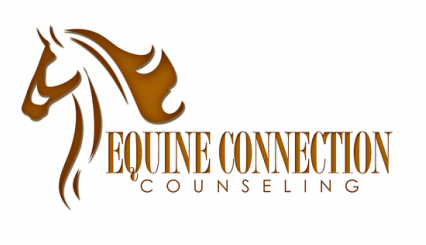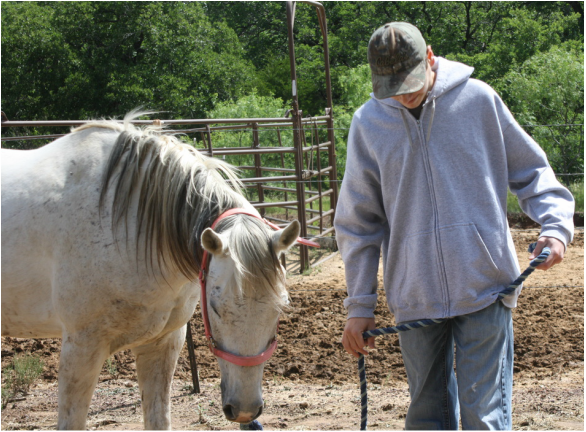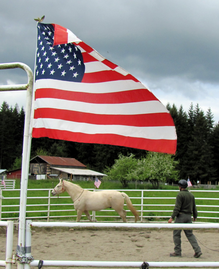When working with teenagers, relationship-based and trauma-informed approaches are considered to be very effective. ECC’s method of equine assisted counseling is a great fit for teens because of its emphasis on the relationship with the horse. The presence of a horse in session can:
- Increase the teen’s motivation to attend session
- Facilitate the teen’s trust of the counselor
- Provide nurturing and acceptance
For many of the teenagers that come to ECC, the horse becomes an important source of comfort and acceptance—things that can be difficult to find in middle and high school. The relationship with the horse becomes a way to both give and receive nurturing. Maladaptive patterns of behavior also become apparent through the teen’s interactions with the horse, but the non-judgmental nature of horses creates a safe space for the client to become aware of and change those behaviors.
EAC can be a great option for teens because unlike traditional therapies, there is less pressure to talk about their lives and their struggles. This helps clients feel more comfortable in session while still doing valuable work through their relationship with the horse. Caregivers frequently report positive changes within the first few sessions. Psychological assessments show that many teens we see at ECC experience significant positive change after just a few months of counseling.
We love getting to work with these teenagers and providing them with a place where they get to be themselves and experience positive relationships with the horses. If you would like to know more about our work with adolescents, comment below or use the contact form to get in touch with us.



 RSS Feed
RSS Feed
